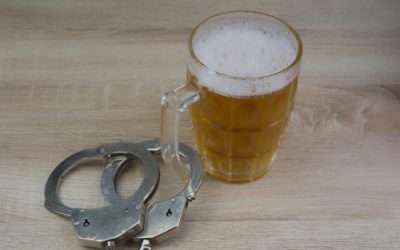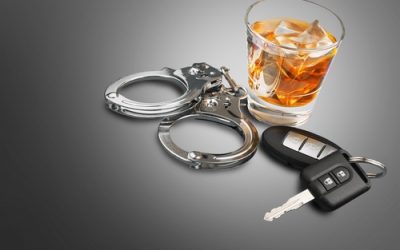Drunk driving is on the rise in Pennsylvania. According to the Pennsylvania DUI Association, there were 10,346 alcohol-related crashes in 2017 compared to 10,256 in 2016. While drunk driving crashes are increasing, drunk driving fatalities have decreased in recent years. But make no mistake, drunk driving can be deadly, especially for the drunk driver. In addition, alcohol-related crashes were four times more likely to result in a fatal injury than crashes not related to alcohol (3.0% of the alcohol-related crashes resulted in fatal injury.
Some 2017 drunk driving statistics of particular interest:
- 293 people died in alcohol-related crashes
- 88% of the alcohol-related occupant fatalities (drivers and passengers) were in the vehicle driven by the drinking driver; 76% were the drinking drivers themselves
- Nearly three-quarters of the drinking drivers these crashes were male
- 18% of all driver fatalities in the 16-20 age group were drinking drivers. That’s an increase of 6% from 2016
- 45 pedestrians were killed in alcohol-related crashes
The state is making a concerted effort to reduce drunk driving through the use of public education programs, sobriety checkpoints, teen drivers education courses, and more.
Pennsylvania DUI Laws
The state of Pennsylvania takes drunk driving very seriously, and recently toughened the penalties for repeat offenders. Pennsylvania DUI laws are in line with the rest of the country as far as blood alcohol content (BAC) and a resulting DUI charge. The legal limit varies depending on your age or whether you’re a commercial driver. Here are the basics:
- Under 21 – If you’re under the age of 21, a BAC of 0.01% is illegal because of the state’s zero tolerance policy for underage drinking
- Commercial Vehicle – If you’re driving a vehicle that requires a CDL license and a sobriety test indicates a BAC above 0.04% you will be charged with DUI
- Over 21 — Like every other state, a BAC of .08 or above is all it takes for you to be charged with DUI
A first time DUI is generally a misdemeanor charge, while repeat offenses can go all the way up to a felony charge.
Pennsylvania DUI Penalties
Penalties for a DUI conviction get harsher based on whether it was a first offense, second offense, third offense, or if you are labeled a repeat offender. Pennsylvania has a 10-year look-back period, meaning any prior convictions for DUI in the last 10 years can be taken into consideration when deciding what penalties you will face.
Penalties can include:
- License suspension
- Probation
- Fines
- Jail time
- Mandatory attendance at an alcohol highway safety school
- Alcohol use treatment if ordered
- Ignition interlock device installation
Ignition interlock device (IID) installation is mandatory for first time offenders with a high BAC or who refuse the breathalyzer. It is also mandatory for anyone under 21 convicted of DUI IID installation is also mandatory for subsequent offenses. The idea is rather than taking away your license for a year after a DUI conviction, which could cause you to lose your job, allowing you to drive with an IID-restricted license prevents you from driving drunk, and lets you keep driving to and from work or school.
If you are required to install an IID in your vehicle, you must get it installed at a state-authorized vendor such as ALCOLOCK. PennDOT has very specific requirements for the ignition interlock device restricted driving program. You can learn more about the requirements in this fact sheet.
Once the device is installed, you will have to take a breath test each time you go to start the car. Pass the test, and you can start the car as you normally would. If the device detects even a minimal amount of alcohol on your breath, it will lock you out, and you cannot start the vehicle. Pretty simple. The IID will record each time you take the test or a rolling retest, and what the results of the test were. Each month, you will need to take your vehicle back to the service center so the technician can upload the record to PennDOT.
Your initial ignition interlock device period can be extended, or you can be removed from the program if:
- You attempted to start the vehicle with a positive BAC reading of above .08%
- You skipped or failed a rolling re-test
- You missed a required service visit
- You were caught driving in a vehicle not equipped with an IID
At the end of your restricted driving period, the technician will remove the device once we have verified with the state that you are eligible for device removal, and we have the correct paperwork.
Ignition Interlock Device Installation in Pennsylvania
ALCOLOCK has a number of ignition interlock device installation locations in Pennsylvania. From Pittsburgh to Philly to everything in between, you’re sure to find a location convenient to you. Call your nearest service center, or call us directly at 866-700-9300 to schedule your ignition interlock device installation. Your installation appointment will last about an hour. That includes the time to train you in how to use the device. Before you know it, you’ll be back on the road and making strides towards regaining full driving privileges.



